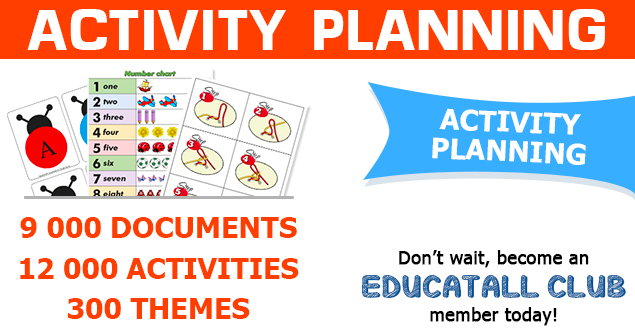
What to expect at 5 years of age
Our big kid has entered his last year in daycare. Soon, he will go to school. He is much more autonomous and will continue to surprise you. In terms of discipline, all major existential stages are practically a thing of the past. There will always be behaviours that need to be managed and an educational framework that needs to be maintained, but in general, the frequency of most negative behaviours has decreased. A simple trick: give your five-year-old responsibilities to foster his autonomy. Doing so will help build his self-esteem and sense of competency, important gains for a child his age.
As for his development, let's look at what you can expect and what may be cause for concern.
How do I move?
At five years old, I am quite autonomous regarding motor skills. I can learn a few swimming techniques, throw and catch a ball, and ride a bike with training wheels. My movements are well-coordinated and I have increased strength, for example when playing with a ball. I can jump rope as well as jump very high and forward. I can walk on my heels and on my toes.
In terms of fine motor skills, my laterality is now well-established. I can hold a pencil like a "big kid" and have been able to do so for quite some time in fact. I can cut out simple shapes such as a circle, a task that was quite challenging for me up until now. I can color within the lines. With practice, I can also fold a piece of paper, lining up the corners. I can now hide 15 tiny objects in my hand. I can lace a card with holes punched around its contour and tie a loose knot with my shoelaces.
How do I communicate?
My language skills are more refined. I can now understand more complex instructions and answer questions involving "why", "how", and "when". I can use the future, present, and past tenses without difficulty. I can follow a story as well as invent stories. When I speak, I am coherent and I interact a lot with others. My pronunciation is very good, but I may have trouble with certain sounds. I can count to 10 and I know many words from different word categories. I can also understand more complex concepts such as seasons.
How do I play?
At my age, I can play with other children. In fact, their presence is quite important for me. I can participate in cooperative games and create games with my peers. The games I enjoy are more complicated; I can enjoy games involving complex rules. I can also invent scenarios independently or with others.
How do I understand my environment?
On a cognitive level, I am slowly beginning to consider my peers' point of view. I am gradually becoming less self-centered and my thinking process is becoming more logical. My drawings are now easy to identify and closer to reality. I can understand and use more and more abstract concepts such as colors, numbers, and spatial concepts. I can better differentiate "yesterday" and "today", but this can still be difficult at times.
What should you worry about?
Even if I will be attending school shortly, it is very important that you keep a watchful eye on my development. If you notice any of the things listed below, please mention it to my parents.
- I do not go up and down stairs using alternating feet.
- I cannot stand on one foot.
- I cannot hop forward with my feet together.
- I cannot catch a ball with my two hands.
- I continue to have difficulty pedaling a tricycle or a bicycle.
- I cannot cut out a square.
- Manipulating scissors is difficult for me.
- I cannot reproduce a square or draw diagonal lines.
- I have difficulty coloring within the lines.
- I am unable to complete a puzzle containing 15-20 pieces.
- Buttoning and unbuttoning is difficult for me.
- I continue to need help to get dressed.
- Following instructions is challenging for me.
- I have trouble answering questions.
- I speak very little, especially spontaneously.
- I rarely express my ideas and feelings.
- I have trouble comparing, giving clear instructions, and commenting.
- When I speak, errors involving gender and number are frequent.
- I do not use simple sentences.
- Verb tense errors are common.
- I have difficulties with my pronunciation, others have trouble understanding me.
You have now followed my evolution from 1 to 5 years old. I hope these articles based on different age groups will help you to adequately intervene and recognize certain developmental difficulties.
Maude Dubé, Specialized educator

 Home
Home Theme activities
Theme activities
 Babies and toddlers
Babies and toddlers
 Arts and crafts
Arts and crafts
 Science
Science
 Creative recipes
Creative recipes
 Tips and tricks
Tips and tricks
 Special needs
Special needs
 Extra activities
Extra activities
 Educ-TV
Educ-TV
 Newsletter
Newsletter  Online store
Online store Educatall club
Educatall club

